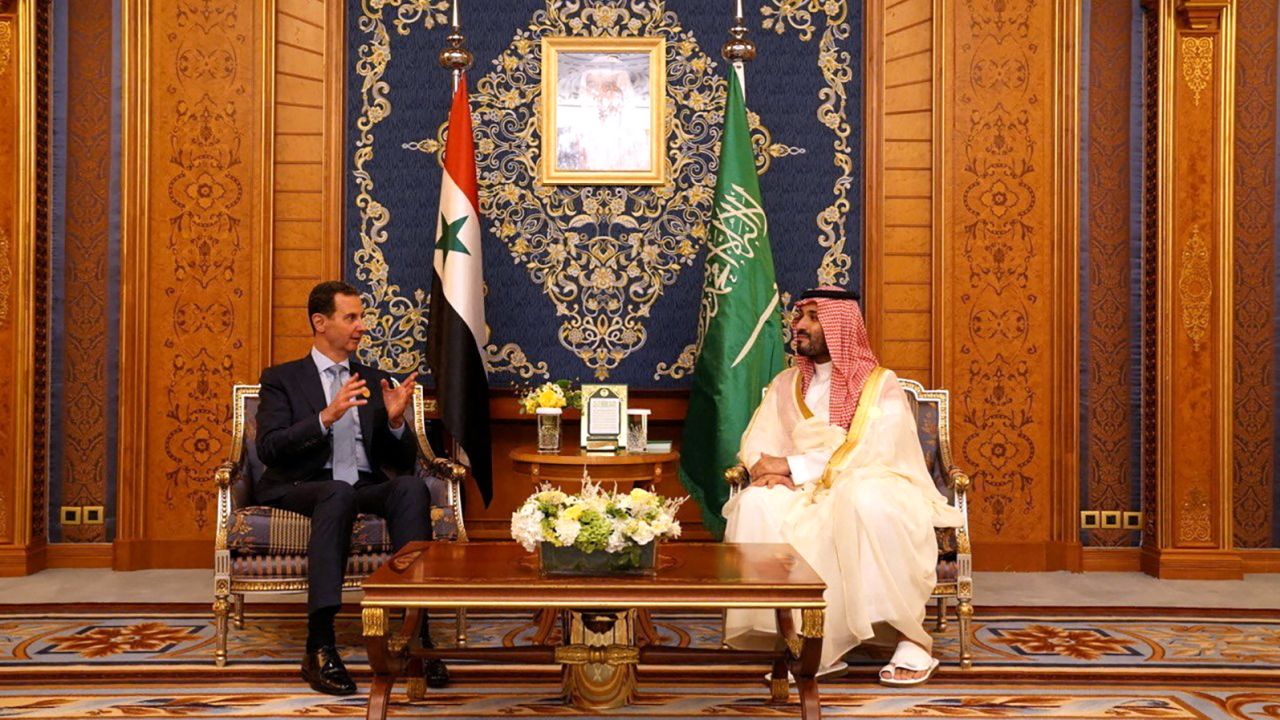Jeddah summit- Syrian file... Gradual solution to the crisis or an Arab search for influence?
The 32nd Arab summit discussed a number of regional Arab issues, where the Syrian crisis took a wide range of discussion and concern, with the presence of Bashar al-Assad at the summit, after 12 years of isolation. Are we facing a gradual solution to the Syrian crisis, or is it an Arab quest to search for influence only?

The Damascus government has returned to participating in the meetings of the Arab League (the Arab Summit), within a framework designed by the Arab countries, led by Saudi Arabia, by returning Damascus to the Arab fold, which is the path of "step by step", so that Syria does not drift further into the Iranian and Turkish arms on the one hand, and that it does not disturb Washington. And Western countries to this rapprochement process, as Riyadh linked the path of Syrian rapprochement with the Arab countries to a gradual solution to the Syrian crisis.
The return of Damascus to the Arab League also comes within the framework of the accelerating regional transformations and the growing Russian, Chinese and Iranian influence, and some experts considered it an American attempt and by moving the Gulf states to go to Damascus, in order not to allow Moscow to be unique in Syria by working on reconciliation between Turkey and the Damascus government mediated by Moscow and Iran.

The researcher on Syrian affairs, Ahmad al-Darzi, considered that "Syria's return to the Arab League has multiple motives, and there is no single reason for that. The Syrian issue has become a burden on all countries of the region, and its continuation in this state will cause more pressure, especially Turkey, Lebanon and Jordan, as well as economic pressure." The exacerbation of the Syrians, may lead to instability, due to the spread of drugs or weapons.
Al-Darzi adds that the other matter is that "the active regional powers have reached a new vision, by moving from a state of rough conflict that exhausted everyone, to a framework of soft conflict, under the title of positive competition, and the search for intersections from which everyone benefits," noting that this matter was not it would not have happened had it not been for the continuous American retreat, and the rise of new powers, most of which are Asian powers, especially those associated with the Syrian war, especially China, Russia, Iran and Turkey, and Saudi Arabia does not come out of this framework, after its shift towards the active Asian powers appeared, and its rapprochement with Iran through the Chinese gate. ".
The researcher believes that all of this "is happening in spite of the United States, which does not want to come out as a sole player in this East, as you can imagine, so it works to remain a party to Syria's return to the Arab League, by setting conditions for this return."
Saudi Arabia spoke during, before and after the Jeddah summit, as well as the Secretary-General of the League of Arab States, Ahmed Aboul Gheit, about subsequent endeavors regarding the Syrian crisis. They also talked about Arab demands for a solution to the Syrian crisis, which the Damascus government must implement.
Al-Darzi believes in this regard, “The issue is not related to desires, as much as it is related to reading the internal, regional and international reality. Because of the collapse of the Syrian state, after the inability to provide the bulk of services to the Syrians, in addition to other issues, and these matters can be postponed, but not indefinitely, and a solution must be sought, and stability can only be achieved through a political solution, even if it is a step step by step".
Regarding the impact of the Arab path to a political solution in Syria, on normalization between Damascus and Turkey, especially since al-Assad directed sharp criticism of Turkey during his speech at the Arab summit, the researcher on the Syrian issue believes that "the Arab bloc, led by Saudi Arabia, can achieve some balance with the Turkish push towards the south." With its economic capabilities, and Turkey's need to get out of its economic crisis, it needs the strongly developing Gulf markets.
In the same context, al-Darzi believes that "Saudi Arabia will become part of the Astana platform, and become five, and Syria will turn into a meeting place for regional powers, but this does not negate that Syrian-Turkish normalization is inevitably coming, as there is no regional role for Turkey in the Arab region, except through the Syrian gate, as That there is no stability in Syria without Syria’s agreement with Turkey,” pointing out that “the size of the interdependence between them, whether it is the longer border between the two countries, or the water problem of the Euphrates and Tigris rivers, or because of the Syrian refugees in Turkey, and we must not forget that there are nearly nine million A Syrian in Turkey, or in the areas it occupied in the north, and these are considered within the Turkish influence.”
And the researcher on Syrian affairs, Ahmed al-Darzi concludes his speech, that all of the aforementioned "sheds light on the statement of the Syrian Foreign Minister Faisal al-Miqdad's acceptance of Damascus' acceptance of the implementation of Resolution 2,254, which means that we are facing the first steps of the Syrian political solution, the final features of which are not yet clear, which is It will take a few years to complete."
T/ Satt.
ANHA













